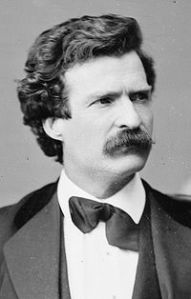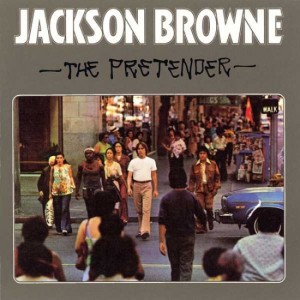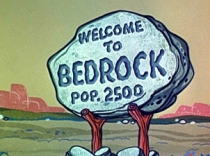 Mark Twain
Mark Twain
When my professor assigned a blog post to profile a Print Pioneer, I eagerly signed up for Mark Twain, thinking it was a golden opportunity to write about my favorite work by Twain, Letters from the Earth.
My enthusiasm was dashed when I read the assignment guidelines in detail, and found that the primary focus had to be on the writer’s career in journalism.
However, I think I can be sneaky and still talk about them; despite the fact that, Letters from the Earth, were written at the end of Twain’s life and published posthumously.
Most people know of Mark Twain’s time as a riverboat pilot and the genesis of his pen name, if you don’t, you can read about that over at History.com.
He had an interesting early life and spent a couple of years of it bouncing between New York City, Philadelphia, and Washington D.C. working as a typesetter in print shops and publishing houses.
In 1857 he found himself in Cincinnati, Ohio working as a typesetter, but longing for adventure. He booked passage on a riverboat to New Orleans with the intention to travel onward to South America.
He never made it to South America, instead he became an apprentice on a riverboat, and actually obtained a pilot’s license, but his career was interrupted by the Civil War.
The war disrupted riverboat traffic to such an extent that Twain returned to Hannibal, Missouri and joined a secessionist militia group. He described the time as, “a couple of weeks retreating from Union troops rumored to be in the area.”
That description is so anti-climactic, that it reeks of the truth in a profoundly funny way, and it is the perfect jumping off point for his time spent as a journalist.
With the war still going on, he left the militia and struck out for the Nevada Territory, publishing occasional stories in San Francisco and New York papers as a Nevada correspondent.
In November of 1865 he gained notoriety when one of his short stories, The Celebrated Jumping Frog of Calaveras County, was published in papers across the country.
This is where Twain’s satirical genius is crystallized for me; because, that frog story is one big rambling disappointment, but that is the punch line, the fact that there is absolutely no payoff. I can sum that story up in in six words; there once was a compulsive gambler.
Twain went on to publish a series of travel letters for a newspaper that financed his tour of the Mediterranean and the Holy Land. The letters were later published in the book, Innocents Abroad.
Here is where I think I think Twain opened the door for future satirists in popular media. Twain became close friends with his travel companions and wrote about their experiences in a truthful, yet sarcastic manner.
They soon became bored with their many guided tours and began making fun of them by acting like dimwits and asking moronic questions.
Here is an excerpt from, Innocents Abroad, when the group is bored with the tour guide and begins amusing themselves by asking stupid questions.
“Enough, enough, enough! Say no more! Lump the whole thing! Say that the Creator made Italy from designs by Michael Angelo!”
I never felt so fervently thankful, so soothed, so tranquil, so filled with a blessed peace, as I did yesterday when I learned that Michael Angelo was dead.
But we have taken it out of this guide. He has marched us through miles of pictures and sculpture in the vast corridors of the Vatican; and through miles of pictures and sculpture in twenty other palaces; he has shown us the great picture in the Sistine Chapel, and frescoes enough to frescoe the heavens–pretty much all done by Michael Angelo.
So with him we have played that game which has vanquished so many guides for us–imbecility and idiotic questions. These creatures never suspect–they have no idea of a sarcasm.
He shows us a figure and says: “Statoo brunzo.” (Bronze statue.)
We look at it indifferently and the doctor asks: “By Michael Angelo?”
“No — not know who.”
Then he shows us the ancient Roman Forum. The doctor asks: “Michael Angelo?”
A stare from the guide. “No — thousan’ year before he is born.”
Then an Egyptian obelisk. Again: “Michael Angelo?”
“Oh, mon dieu, genteelmen! Zis is two thousan’ year before he is born!”
This type of humor is mild by today’s standards, but Mark Twain was capable of much more edgy content, Letters from the Earth.
Twain thought that they were too heretical to be published in his day, and he was right. They weren’t published until 1962.
He is extremely harsh on Christianity, and both his biographer, and daughter were reluctant to publish them. They actually tried to explain Twain’s harshness on the hardship that he experienced in his late years. However, I think that there is ample evidence that Twain was at least an agnostic if not an atheist in his earlier writings.
He certainly struggled with aspects of the Christian faith as many people do, and I strongly identified with, Letters from the Earth, when I read them. The letters are from the Archangel Satan to the Archangels Gabriel and Michael about his observations of humans and the religion they created, namely Christianity.
The message I came away with after reading them is that humans, however strange and brutal they might be at times, have a superior moral character than the God depicted in the Old and New Testaments.
People in Twain’s day did not attack religion in such a harsh manner in public media, and I find the fact that these letters were published in 1962 not at all surprising. The year 1962, was at the front of a wave were many traditional ways of thinking were called into question.
I see our current generation of satirists like, Jon Stewart and Stephen Colbert, as owing their freedom to lampoon anything to a true pioneer like Mark Twain.





Should Brian Williams be fired?
Brian Williams – NBC News
Brian Williams should resign his position as Anchor and Managing Editor of NBC Nightly News. He has been unquestionably exposed telling untruths about being aboard a helicopter struck by a rocket-propelled grenade during the 2003 invasion of Iraq.
The question of firing him should not even be a matter of debate for NBC executives, especially if one assumes that Williams cares for the good of NBC News. He should relieve them of that decision, and simply resign.
Given the length and nature of his relationship with NBC, it is a reasonable assumption that he cares about the organization.
There is also little doubt that there are still those at NBC who care a great deal for Williams. In a recent memo concerning the Brian Williams controversy, Deborah Turness, president of NBC News, referred to the organization as a close-knit family.
It is fantastic that the atmosphere in the NBC news division feels like that of a close-knit family; however, they are a news organization and not a family.
Turness did acknowledge the seriousness of Williams’ ethical failure when she announced his six-month suspension.
“…This was wrong and completely inappropriate for someone in Brian’s position.
In addition, we have concerns about comments that occurred outside NBC News while Brian was talking about his experiences in the field.
As Managing Editor and Anchor of Nightly News, Brian has a responsibility to be truthful and to uphold the high standards of the news division at all times.”
This leaves little doubt that she fully understands the breech in trust this represents, but she goes on to explain.
“…We felt it would have been wrong to disregard the good work Brian has done and the special relationship he has forged with our viewers over 22 years…”
It is here that a failure in judgment occurs for Turness and the other executives at NBC; they are not handing out punishment to an adolescent family member, but to a news editor and anchor who committed a firing offence.
Williams should have tendered his resignation, leaving them to deal with rebuilding the trust of their viewers. But now the organization faces a lengthy investigation, and even future embarrassment as the saga will be drawn out over the course of six months.
The news media is like any other human endeavor, it is inherently flawed. We humans sometimes tell lies, we sometimes hold personal agendas over the well-being of our fellow humans, and sometimes we simply fail miserably.
New York Times blogger, Tara Parker-Pope, recently posted that,
“The fallibility and the malleability of the human memory is at the center of a national controversy involving Brian Williams, the “NBC Nightly News” anchor.”
While one can certainly acknowledge the fallibility of the human condition, it is preposterous when Parker-Pope goes on to suggest Williams is a victim of false memory, or that he shouldn’t be held to a higher standard.
We are not talking about a drunken uncle at the VFW Hall embellishing his battlefield exploits; we are talking about the Managing Editor of NBC Nightly News.
When humans band together to create institutions, we are at our most brilliant, we accomplish our greatest achievements, and we manage to mitigate our personal flaws by relying on the strength of the institution.
Brain Williams should hold himself accountable and resign; if not, NBC leadership needs to hold him accountable to the standards of the organization, and fire him.
Posted by Chris on February 15, 2015
https://bedlamandchaosreview.wordpress.com/2015/02/15/should-brian-williams-be-fired/